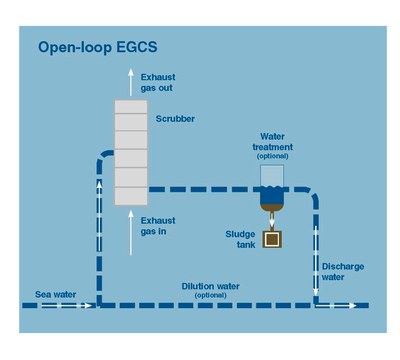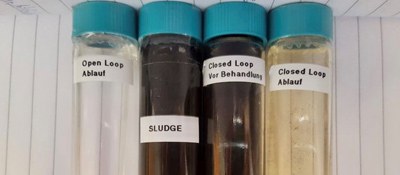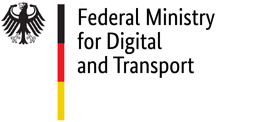BG Verkehr / Dienststelle Schiffssicherheit
Referat Maschine
Brandstwiete 1
20457 Hamburg

Holger Steinbock
Phone: +49 40 36137-217
Fax: +49 40 36137-204
Mail: maschine@bg-verkehr.de

Jörg Heuckeroth
Phone: +49 40 36137-231
Fax: +49 40 36137-204
Mobile: +49 171 50 57 038
Mail: maschine@bg-verkehr.de
Bundesamt für Seeschifffahrt und Hydrographie
Referat S15 - Umweltschutz im Seeverkehr
Bernhard-Nocht-Straße 78
20359 Hamburg

Katrin Ewert
Phone: +49 40 3190-71500
Fax: +49 40 3190-5000
Mail: marpol@bsh.de
Environmental fuels · Scrubber · LNG
Solutions for a lower sulphur content
Fuel oil
In maritime shipping, heavy fuel oil is still the most commonly used fuel for ship's engines. However, the required sulphur content in fuel of 0.50 % in general and 0.10 % in emission control areas cannot be achieved with common heavy fuel oil. Many shipping companies and charterers choose Marine Gas Oil (MGO), which is lower in sulphur, or an Ultra Low Sulphur Heavy Fuel Oil (ULSHFO).
A conversion of the machinery will also allow ships to use HFO and MGO alternatingly. However, MGO is more expensive than HFO.
Gas-to-Liquids (GtL)
The Federal Maritime and Hydrographic Agency (BSH) operates five ships as research vessel or other kinds of purpose for the government. Those five ships all use GtL by now – Gas-to-Liquids – a fuel that is better for the environment. The fuel is free of sulphur and the emission values regarding nitrogen oxide and particle emission are better than conventional diesel fuels. Several shipping companies operating ferries in island traffic in the North Sea use GtL as fuel for their ships as well.
Methanol, hydrogen, batteries
Other alternative fuels and ways of propulsion such as methanol, biodiesel, hydrogen, batteries or hybrid propulsion systems are not yet a realistic alternative because a comprehensive implementation would mostly fail for reasons of low economic efficiency or limited availability. Although, some of these solutions are already suitable for niche areas.


Scrubbers
An alternative to Marine Gas Oil is the use of an exhaust gas cleaning system, a so called scrubber. These units wash out the sulphur compounds using sea water. The installation of scrubbers aboard a ship is expensive and takes up relatively large areas of space thus reducing the available cargo space.
You can find the conditions for discharging scrubber waste water in German waters as well as further information on the website of the Federal Maritime and Hydrographic Agency (BSH) (German only).
Liquid Natural Gas (LNG) as fuel
Another solution to comply with the low sulphur content is the use of Liquid Natural Gas (LNG) as fuel. LNG is a natural gas that has been cooled down to -162° degrees Celcius, which keeps it in a liquid condition. The whole machinery system of the ship needs to be set up for LNG usage, which is an expensive conversion for an existing ship. There are also not enough fuel stations in ports yet. On the other hand, burning LNG is a lot cleaner than conventional fuels. Shipping experts expect an increase in LNG fuelled maritime shipping as medium to long-term prognosis.
LNG becomes increasingly important for German-flagged shipping as well. The ferries MS „Helgoland“ der Reederei Cassen Eils and MS „Ostfriesland“ der Reederei AG „Ems“ were the first ships with LNG propulsion under German. In 2020, the BSH-fleet gained its first LNG-fuelled ship - the research vessel ATAIR - whose main areas of operation are sea surveying and wreck search.
Overview of alternative fuels
Which fuel should shipping companies choose to become climate-neutral? There is no easy answer. Moreover, newly built ships will still sail in 20 years. The decisions made by shipping companies today will have far-reaching consequences for the objective of making maritime shipping climate-neutral.
In its study "Fuel analysis in shipping by ship segment", the German Maritime Centre (DMZ) offers an overview of all environmentally-friendly fuels as an alternative to the existing fossil energy carriers. The authors of the study demonstrate how alternative fuels are made, how efficient they are, how much they cost and what is involved in operating them on converted and newly-built ships.

